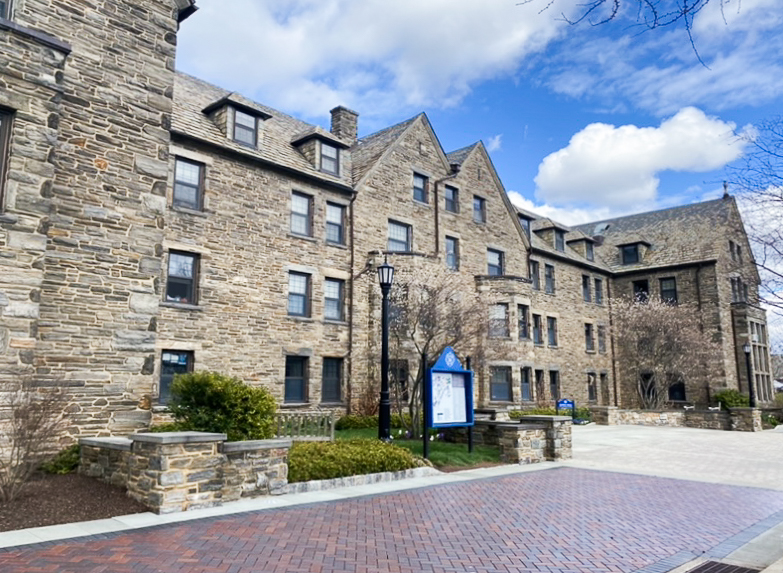Pro: Test-Optional Admissions Level the Playing Field
Courtesy of Maggie Graw/Villanovan Photography
Villanova, like many other universities this year, chose to make its application test-optional.
April 13, 2022
Anyone on campus this Saturday saw the flocks of prospective students flood Villanova’s Rowen Campus Green and Mendel Field. This year’s admission cycle was very competitive, with the Office of Undergraduate Admission revealing a 23% admit rate for the class of 2026. Of those admitted, 43% applied to Villanova test-optional, meaning they did not submit an SAT or ACT score along with their application.
This has been the second year in a row that Villanova made its application test-optional, and it plans to continue this practice for next year’s admission cycle as well. Many colleges across the country have continued to do the same, with the University of California system deciding to “phase out consideration of the SAT or ACT for any student’s admission, in or out of state, in 2025,” according to the New York Times.
The move to test-optional admission brings up mixed feelings for student applicants and observers, as it did in last year’s admission cycle as well. Some criticize the practice as making college admission too easy for students or that it takes away an important differentiating factor between applicants.
While it is fair to say that minimizing tests like the SAT and ACT does inevitably mean losing another avenue for students to set themselves apart from one another, this avenue is a flawed one to begin with.
For starters, when studying for the SAT, one doesn’t simply study math and English, but rather focuses on “SAT math or English.”
This sentiment was highlighted in a commercial created by the Princeton Review, a college admissions service that helps students prepare for standardized tests. The particular commercial began with Editor-in-Chief Rob Franek speaking in a comical tone.
“Here at the Princeton Review, we’ve long said that the SAT only tests your ability on mastering the SAT,” Franek said.
While the SAT and ACT curriculum is supposedly designed to include skills that should have been introduced in high school, it instead produces its own sort of “subject” that requires students to spend months honing their skills.
Since the tests are structured in this way, some are able to study directly for them and perform really well. Some take classes, and others have private SAT or ACT tutors, resources that require time and money. The practice monetizes one’s ability to excel on the test and get into college.
Additionally, SAT and ACT prep books usually range from around $30 to $70, and more elite programs that promise a certain score to students require hundreds to thousands of dollars. In requiring students to take the SAT or ACT, universities give another edge to economically better-off students, with all of the other socioeconomic factors hurting those applicants who can’t afford premium standardized testing prep.
Furthermore, the standardized nature of these tests limit their ability to represent students. It has long been argued that students show more of themselves in the supplemental essays portion of applications.
Aside from this, without an SAT or ACT, universities are required to take a closer look at student profiles. It forces them to look at different organizations a student is involved in, sports they have played, jobs they’ve held and things they love. Phasing out these tests would make many admissions officers look more at the student holistically.
This appreciation for the deeper evaluation of each student is demonstrated in Villanova’s choice this year, as Villanova takes “pride in [its] multifaceted and holistic application review process,” according to the Office of Undergraduate Admission.
It takes the time to evaluate an applicant’s “high school performance, strength of academic curriculum, standardized test scores (if submitted), application essays, extracurricular activities, counselor recommendation and teacher recommendation.”
With the next class of Villanovans excitedly making its college decisions, it is valuable that Villanova chose to admit test-optional applicants for the class of 2026. It likely prompted admissions officers to take a deeper look at applicants, giving every prospective student a more fair chance at attending this university.


